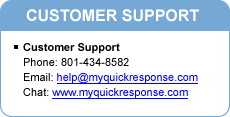
This week we're going to cover Stealth Linking and Contextual Links.
Stealth linking:
Many popular sites and vertical portals contain a forum or message board. Forms allow visitors to edit the content of the page by adding posts. These posts can contain links to your site!
1. Search for forums relevant to your product.
2. Create an account and sign in to the forum.
3. Add a link to your site in your signature.
4. Take an active and real part in the discussions on the forum.
5. Ask questions relevant to your product and answer any questions you can.
6. Each time you take part in the forum you will be adding a link to your sites for forum users to see.
7. Search engines will count any number of links in a single forum as one link so don’t waste your time spamming the forum.
8. Forum moderators will delete your posts if they suspect you of advertising your site, so add value to the discussion.
Stealth linking not only increases your ranking, but it also puts your link in front of a group of interested potential customers. Read the full explanation of Stealth linking in Merchant Services.
Contextual Linking:
Contextual linking is simply placing links within the text of the page. Placing the link ‘in context’ rather than simply on a list makes these links more user friendly since they are found in context thus making more sense to the reader, as well as more search engine friendly because they are surrounded by other relevant keywords. In your welcome paragraph you typically have several keywords.
Major RSE’s like Google have made it known that contextual links are an important way to link products and informational pages together. Google prefers the use of contextual links over more traditional listed links because the context around the link supports its relevancy
. It also avoids the common practice of using endless lists of pasted-in links to bolster your site’s perceived popularity. Contextual linking shows that not only does your site have the information, but you have also linked to other sites and pages that support that information.
Whenever you have a descriptive paragraph on any page you can and should link the keywords within your text. You may link keywords or phrases to pages, categories, products or even your link trading partner’s pages.
Doing so will not only make your site more usable, but it will be looked at in a better light by search engines indexing your site.
You can see a good example of contextual links by viewing any article in Wikipedia.com.
Each entry has pages of information with all the keywords linked to pages that define and explain that concept. Any article you read on Wikipedia links you to all of the information you need to fully understand what you have read.
This week we're going to cover Stealth Linking and Contextual Links.
See you next time!
Sean Guy
Director of Customer Service
StoresOnline, Inc.
Stealth linking:
Many popular sites and vertical portals contain a forum or message board. Forms allow visitors to edit the content of the page by adding posts. These posts can contain links to your site!
1. Search for forums relevant to your product.
2. Create an account and sign in to the forum.
3. Add a link to your site in your signature.
4. Take an active and real part in the discussions on the forum.
5. Ask questions relevant to your product and answer any questions you can.
6. Each time you take part in the forum you will be adding a link to your sites for forum users to see.
7. Search engines will count any number of links in a single forum as one link so don’t waste your time spamming the forum.
8. Forum moderators will delete your posts if they suspect you of advertising your site, so add value to the discussion.
Stealth linking not only increases your ranking, but it also puts your link in front of a group of interested potential customers. Read the full explanation of Stealth linking in Merchant Services.
Contextual Linking:
Contextual linking is simply placing links within the text of the page. Placing the link ‘in context’ rather than simply on a list makes these links more user friendly since they are found in context thus making more sense to the reader, as well as more search engine friendly because they are surrounded by other relevant keywords. In your welcome paragraph you typically have several keywords.
Major RSE’s like Google have made it known that contextual links are an important way to link products and informational pages together. Google prefers the use of contextual links over more traditional listed links because the context around the link supports its relevancy
. It also avoids the common practice of using endless lists of pasted-in links to bolster your site’s perceived popularity. Contextual linking shows that not only does your site have the information, but you have also linked to other sites and pages that support that information.
Whenever you have a descriptive paragraph on any page you can and should link the keywords within your text. You may link keywords or phrases to pages, categories, products or even your link trading partner’s pages.
Doing so will not only make your site more usable, but it will be looked at in a better light by search engines indexing your site.
You can see a good example of contextual links by viewing any article in Wikipedia.com.
Each entry has pages of information with all the keywords linked to pages that define and explain that concept. Any article you read on Wikipedia links you to all of the information you need to fully understand what you have read.
This week we're going to cover Stealth Linking and Contextual Links.
See you next time!
Sean Guy
Director of Customer Service
StoresOnline, Inc.
Leave a Comment:












